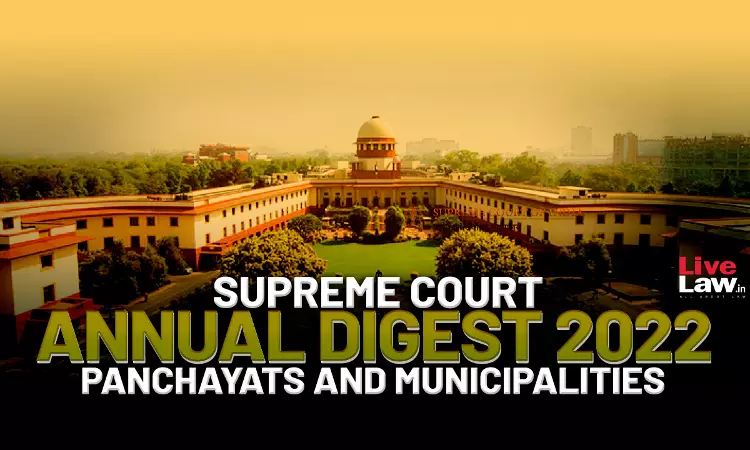Supreme Court Annual Digest 2022- Panchayats And Municipalities
LIVELAW NEWS NETWORK
23 Jan 2023 10:11 AM IST

Next Story
23 Jan 2023 10:11 AM IST
Constitution of India, 1950 - Appeal against High Court order that set aside order issued by Municipality cancelling work order to appellant - Allowed - In absence of any evidence and material on record and there being disputed questions of facts the High Court ought not to have passed the impugned judgment and order directing the Council to continue the work order....
